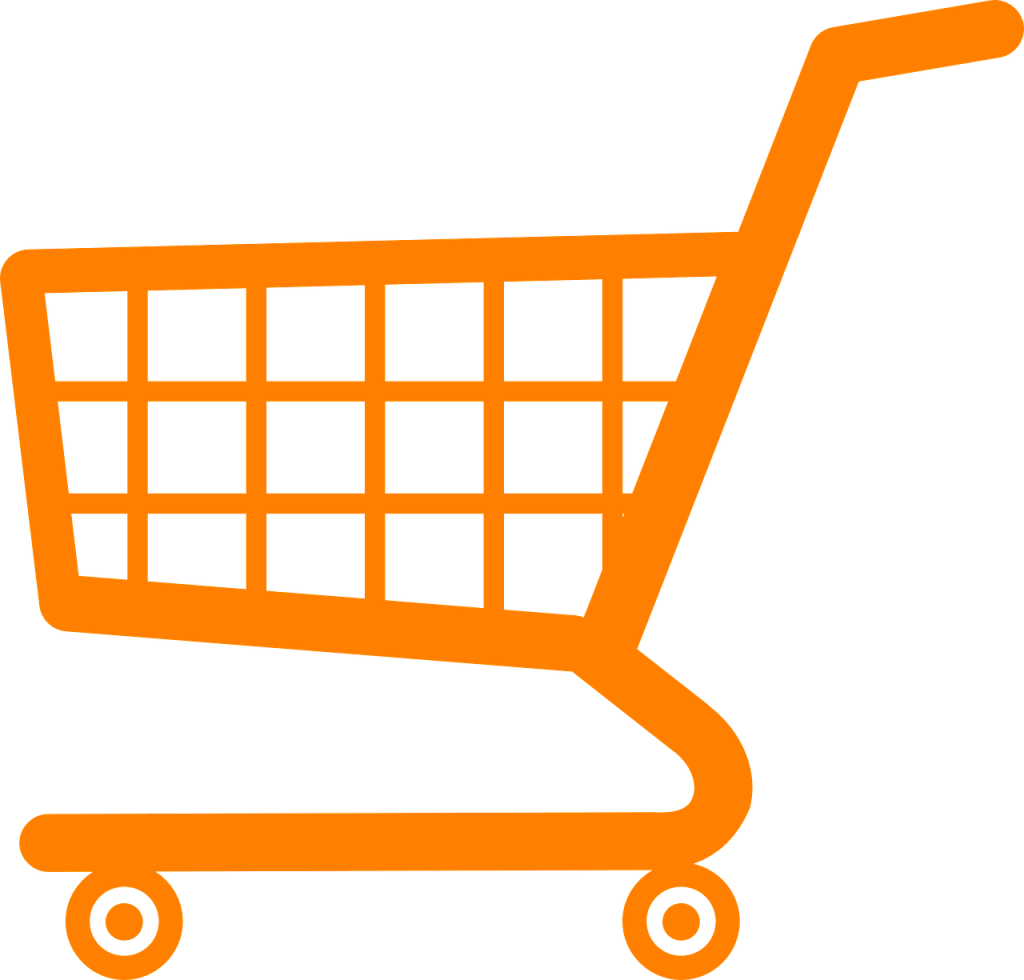So, you’ve decided to take your small business online and you’re in need of a platform to sell your products or services. But with so many options out there, how do you know which one is the best fit for you? In this article, we’ll explore the various platforms available and provide you with all the information you need to make an informed decision. Whether you’re a budding entrepreneur or an established small business owner, finding the right platform can be the key to your online success. Let’s dive in and find out which platform is the perfect match for your small business.

This image is property of pixabay.com.
1. Defining the Criteria for Evaluating an Online Selling Platform
When it comes to choosing the best platform for your online small business, there are several important factors to consider. By evaluating these criteria, you can find the platform that aligns with your business goals and meets your specific needs.
1.1 Cost
Cost is a crucial factor for any small business, especially when it comes to choosing an online selling platform. It’s important to consider both the upfront costs and any ongoing fees associated with the platform. Some platforms charge a fixed monthly fee, while others may have variable pricing based on your business’s size and sales volume. It’s also worth considering any additional costs for themes, plugins, or transaction fees that may be associated with the platform.
1.2 Ease of Use
For small business owners who may not have extensive technical expertise, the ease of use of an online selling platform is paramount. The platform should have a user-friendly interface and intuitive navigation that allows you to easily manage your inventory, update product descriptions, and process orders. Look for platforms that offer drag-and-drop functionality and provide helpful tutorials or customer support to assist you in getting started.
1.3 Customization Options
Every small business has its own unique branding and aesthetic. It’s important to choose a platform that offers a range of customization options to reflect your brand identity. Look for platforms that provide flexible design templates, the ability to customize colors and fonts, and the option to upload custom logos or banners. The more customizable the platform, the better you’ll be able to create a unique and visually appealing online store.
1.4 Integration with Other Tools
As a small business owner, you may already be using various tools and software to manage different aspects of your business. It’s essential to choose an online selling platform that integrates seamlessly with these tools. Look for platforms that offer integrations with popular accounting software, email marketing platforms, and analytics tools. This integration will streamline your business operations and provide you with a more holistic view of your online store’s performance.
1.5 Payment Processors
A crucial aspect of any online store is the ability to securely process payments. Evaluate the payment processors that each platform supports and consider the transaction fees associated with each option. Look for platforms that offer a wide range of payment options, including credit cards, digital wallets, and PayPal. It’s also important to ensure that the platform supports the level of security and encryption required to protect your customers’ sensitive information.
1.6 SEO Features
Search engine optimization (SEO) plays a vital role in driving organic traffic to your online store. Consider the SEO features provided by each platform and how well they align with your SEO strategy. Look for platforms that allow you to optimize product descriptions, add meta tags, and create search engine-friendly URLs. Additionally, some platforms may offer built-in SEO tools or integrations with third-party SEO plugins to further enhance your store’s visibility in search engine results.
1.7 Marketing and Advertising Tools
To effectively promote your online store and attract customers, it’s important to choose a platform that offers robust marketing and advertising tools. Look for platforms that provide built-in features for email marketing, social media integration, and discount code creation. Some platforms may even offer advanced marketing features such as abandoned cart recovery, customer segmentation, and personalized recommendations. These tools can greatly assist in growing your business and increasing sales.
1.8 Mobile-Friendly Design
In today’s mobile-driven world, it’s crucial for your online store to have a mobile-friendly design. Choose a platform that offers responsive templates, ensuring that your store looks and functions seamlessly on mobile devices. Mobile optimization can significantly impact your store’s user experience and search engine rankings, so prioritize platforms that prioritize mobile-friendly design.
1.9 Scalability
As a small business owner, it’s important to choose a platform that can grow with your business. Consider the scalability options provided by each platform and whether they can accommodate your evolving needs. Look for platforms that allow you to easily add new products, expand your customer base, and handle increased sales volume. Scalability is key for long-term success, so make sure the platform you choose can support your business’s growth.
1.10 Customer Support
Having access to reliable customer support is essential when running an online store. Evaluate the customer support options provided by each platform, such as email, live chat, or phone support. Look for platforms that offer timely and knowledgeable support to address any technical issues or concerns that may arise. Additionally, consider whether the platform provides comprehensive documentation, tutorials, or a community forum where you can find answers to common questions.
2. Evaluating the Top Platforms for Online Small Business Selling
Now that we have defined the criteria for evaluating an online selling platform, let’s dive into the top platforms available for small businesses. Each platform has its own strengths and weaknesses, so it’s important to assess them based on your specific needs and priorities.
2.1 Shopify
Shopify is a leading e-commerce platform known for its user-friendly interface and extensive range of features. It offers a variety of pricing plans to suit different business sizes and budgets. Shopify excels in customization options, providing numerous design templates and a powerful theme editor. It integrates seamlessly with various payment processors and offers built-in SEO tools. Additionally, Shopify offers 24/7 customer support and a wide range of marketing and advertising tools.
2.2 WooCommerce
WooCommerce is a popular WordPress plugin that allows you to turn your WordPress website into a fully functional online store. Since it is built on WordPress, it offers great flexibility and customization options. WooCommerce is highly scalable and provides various extensions and themes that enhance its functionality. It supports multiple payment processors and offers a wide range of marketing and SEO plugins. However, it requires more technical knowledge to set up and maintain compared to some other platforms.
2.3 BigCommerce
BigCommerce is a comprehensive e-commerce platform that offers features suitable for businesses of all sizes. It provides a range of pricing plans and includes hosting, SSL certificate, and unlimited bandwidth. BigCommerce offers an intuitive drag-and-drop editor for easy customization and integrates with popular payment processors. It offers powerful SEO tools and advanced marketing features like abandoned cart recovery and product recommendations.
2.4 Wix
Wix is a website builder that also offers e-commerce functionality. It provides visually appealing templates and a drag-and-drop editor for easy customization. Wix offers a variety of pricing plans and integrates with popular payment processors. While it may not have as extensive e-commerce features as some other platforms, it is a great option for small businesses looking for a user-friendly platform that combines website and online store functionality.
2.5 Squarespace
Squarespace is another website builder that includes e-commerce capabilities. It offers beautiful templates and an easy-to-use interface. Squarespace provides built-in SEO features and integrates with popular payment processors. It may not have as many advanced marketing tools as some other platforms, but it is a solid option for small businesses that prioritize aesthetics and simplicity.
2.6 Magento
Magento is an open-source platform designed for businesses with more complex e-commerce needs. It offers extensive customization options, allowing businesses to create highly tailored online stores. Magento can handle large product catalogs and high transaction volumes, making it suitable for businesses with significant growth potential. However, Magento requires more technical expertise to set up and maintain compared to other platforms.
2.7 Volusion
Volusion is an all-in-one e-commerce platform that provides a range of features for small businesses. It offers customizable themes, supports multiple payment processors, and includes built-in SEO features. Volusion also provides comprehensive customer support options to assist small business owners with any challenges they may encounter.
2.8 Weebly
Weebly is a drag-and-drop website builder with built-in e-commerce functionality. It offers visually appealing templates and a user-friendly interface. Weebly integrates with various payment processors and provides basic SEO features. While it may not have as many advanced features as some other platforms, it is a suitable option for small businesses looking for simplicity and ease of use.
2.9 Etsy
Etsy is a specialized marketplace for handmade, vintage, and unique products. It is a popular platform for small businesses that create and sell these types of products. Etsy provides a built-in customer base and easy-to-use tools for listing and managing products. However, it may not offer the same level of customization and control as standalone e-commerce platforms.
2.10 Amazon
Amazon is the largest online marketplace globally, offering small businesses a vast customer base and fulfillment services through Amazon FBA. Selling on Amazon can provide exposure to millions of potential customers, but it also comes with fierce competition and Amazon’s stringent policies and fees. While it may not offer the same level of control as other platforms, many small businesses find success by leveraging Amazon’s massive reach.

This image is property of pixabay.com.
3. Comparison and Analysis of Features and Benefits
Now that we have evaluated the top platforms for online small business selling, let’s compare and analyze their features and benefits based on the criteria we defined earlier.
3.1 Cost Analysis
When it comes to cost, Shopify, BigCommerce, and Volusion offer pricing plans that cover a wide range of budgets, while platforms like Magento might require more significant upfront investment due to hosting and development costs. WooCommerce, Wix, and Squarespace offer more cost-effective options, especially for businesses already using their respective website builders. Etsy and Amazon have their own fee structures based on listing and transaction fees.
3.2 Ease of Use Comparison
Shopify, WooCommerce, Wix, Squarespace, and Weebly are known for their user-friendly interfaces and intuitive tools, making them suitable for small business owners who may not have extensive technical knowledge. Platforms like Magento and Volusion may require more advanced technical skills to set up and maintain.
3.3 Customization Options Comparison
Shopify, WooCommerce, Wix, and Squarespace offer a wide range of customization options with themes, templates, and design editors. Magento provides the most flexibility for customization but requires more technical expertise. Volusion and Weebly provide solid customization options as well, but they may not be as extensive as some other platforms.
3.4 Integration Capabilities Comparison
Shopify, WooCommerce, and BigCommerce are known for their extensive integrations with various tools and software, making it easy to connect your online store with other business operations. Wix, Squarespace, and Weebly also offer integrations with popular tools, but their options may be more limited. Magento and Volusion have their integrations available but may require more technical expertise to set up.
3.5 Payment Processors Comparison
Most platforms support popular payment processors like PayPal and Stripe. However, Shopify, WooCommerce, and BigCommerce offer more extensive options, including direct integrations with major credit card processors. Etsy and Amazon have their own payment systems that handle transactions within their respective marketplaces.
3.6 SEO Features Comparison
Shopify, WooCommerce, BigCommerce, and Squarespace offer built-in SEO features and tools to optimize your store for search engines. Wix, Weebly, and Volusion also provide basic SEO capabilities. Magento offers advanced SEO possibilities but may require more technical expertise or additional plugins.
3.7 Marketing and Advertising Tools Comparison
Shopify, BigCommerce, and WooCommerce excel in providing advanced marketing and advertising tools, including email marketing, social media integration, and abandoned cart recovery features. Wix, Squarespace, Volusion, and Weebly offer basic marketing tools, which may be sufficient for small businesses with simpler marketing strategies. Etsy and Amazon provide their own marketing channels within their marketplaces.
3.8 Mobile-Friendly Design Comparison
Shopify, WooCommerce, Wix, Squarespace, and Weebly all provide responsive templates and mobile-friendly designs. BigCommerce and Volusion also offer mobile optimization, but some customizations may have limitations. Magento can achieve mobile responsiveness but may require more development work.
3.9 Scalability Comparison
Shopify, WooCommerce, BigCommerce, and Magento can all scale with your business’s growth. They offer various features and options to accommodate increasing product catalogs and sales volume. Wix, Squarespace, Volusion, Weebly, Etsy, and Amazon also have scalability, but their specific scalability features may vary.
3.10 Customer Support Evaluation
Shopify, WooCommerce, BigCommerce, and Volusion offer comprehensive customer support options, including 24/7 live chat, email, and phone support. Wix, Squarespace, Weebly, and Magento also provide customer support but may have limitations in terms of availability or response time.
4. Real-Life Success Stories and Case Studies with Different Platforms
To further understand the real-life impact of these platforms, let’s explore some success stories and case studies.
4.1 Shopify Success Stories
- Gymshark: Built a $1.3 billion business using Shopify’s scalable platform.
- Kylie Cosmetics: Kylie Jenner’s beauty brand leveraged Shopify’s features to achieve tremendous growth.
4.2 WooCommerce Success Stories
- Ninja Forms: A popular form plugin for WordPress that has grown its business with WooCommerce as its e-commerce solution.
- Luhse Tea: A successful tea company that built its entire online store using WooCommerce.
4.3 BigCommerce Success Stories
- Skullcandy: A well-known audio brand that uses BigCommerce to manage its multi-million dollar online business.
- S.W. Basics: A skincare brand that experienced significant growth using the BigCommerce platform.
4.4 Wix Success Stories
- HydrateM8: A company that achieved rapid growth and international success selling hydration bottles through Wix.
- Meowingtons: A cat-themed online store that utilized Wix’s tools and platform to grow into a successful business.
4.5 Squarespace Success Stories
- The Candi Factory: A fashion brand that built an impressive online store and achieved substantial growth using Squarespace.
- Gym+Coffee: An athleisure brand that utilized Squarespace’s intuitive tools to create a visually appealing and user-friendly online store.
4.6 Magento Success Stories
- Paul Smith: A renowned fashion brand that uses Magento’s platform for its e-commerce operations.
- Boodles: A luxury jeweler that achieved success with Magento’s flexible and scalable solution.
4.7 Volusion Success Stories
- Snarky Tea: A company that grew its business with Volusion’s e-commerce features and marketing tools.
- LazerDesigns.com: An online personalization and gifting store that found success using Volusion’s platform.
4.8 Weebly Success Stories
- Blenders Eyewear: A sunglasses and accessories brand that flourished with Weebly’s website and e-commerce features.
- Corked: A wine subscription company that used Weebly’s tools to build a successful online store.
4.9 Etsy Success Stories
- Printable Wisdom: A shop that sells personalized prints, which achieved significant success within the Etsy marketplace.
- ReTwisst: A sustainable yarn brand that found its niche and grew its business on Etsy.
4.10 Amazon Success Stories
- Anker: A technology brand that found great success selling its products on Amazon’s platform.
- MoKo: A company that manufactures and sells accessories for electronic devices, achieving significant growth through Amazon.

This image is property of pixabay.com.
5. Choosing the Best Platform for Your Small Business
Now that we have thoroughly evaluated the criteria, features, and success stories for each platform, it’s time to choose the best platform for your small business. Here are some steps to guide you in making an informed decision:
5.1 Assessing Your Business Needs and Goals
Consider your specific business needs and goals. Think about the scale of your operation, the products or services you offer, and your target audience. Determine what features and functionality are critical for your online store.
5.2 Analyzing Budgetary Constraints
Evaluate your budget and understand the costs associated with each platform. Consider the upfront costs, ongoing fees, transaction fees, and any additional expenses such as themes or plugins. Choose a platform that aligns with your budget while providing the necessary features.
5.3 Considering Key Features and Functions
Review the features and functions provided by each platform and prioritize them based on your business’s requirements. Choose a platform that offers the essential features your business needs while also considering the potential for growth and scalability.
5.4 Taking the Learning Curve into Account
Consider your technical expertise and the learning curve associated with each platform. Some platforms are more user-friendly and intuitive, while others may require more advanced technical knowledge or development skills. Choose a platform that matches your comfort level and ability to learn and implement new tools.
5.5 Weighing the Pros and Cons of Each Platform
Evaluate the pros and cons of each platform based on the criteria we discussed earlier. Consider the specific advantages and disadvantages that align with your business goals, budget, and technical capabilities. This comparative analysis will help you make an informed decision.
5.6 Seeking Recommendations and Reviews
Reach out to fellow entrepreneurs, industry peers, or online communities to gather recommendations and read reviews about the platforms you’re considering. Real-world insights from people who have used these platforms can provide valuable perspectives and help inform your decision.
5.7 Making an Informed Decision
Based on your assessment of the criteria, features, success stories, and recommendations, make a well-informed decision on the best platform for your small business. Remember that no platform is perfect, and it’s important to choose the platform that aligns with your specific needs and priorities.
6. Final Thoughts
Choosing the best platform for your online small business is a crucial decision that can greatly impact your success. By evaluating the criteria, reviewing the top platforms, comparing their features, and considering real-life success stories, you can make an informed decision that aligns with your business goals and objectives. Remember to regularly assess your chosen platform’s performance and adapt as your business evolves.

